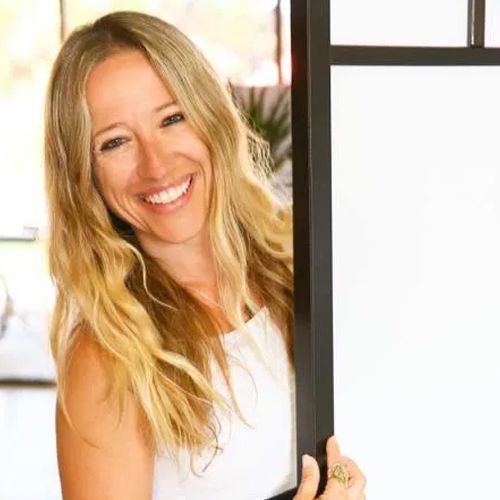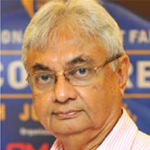
Paola Masperi
Designer
Label - Mayamiko
We are season free and therefore timeless in our approach to design
Established by Paola Masperi, Mayamiko is a responsible womenswear and lifestyle brand, lovingly created by the women who are at the heart of its social enterprise, with ethics and sustainability at its core. The brand was founded working alongside charity through the Mayamiko Fashion Lab, where many of the label’s garments are made. In an interview with Fibre2Fashion, the designer talks about her journey and the challenges faced while starting her venture.
Fibre2Fashion: Mayamiko is a Trust organisation as well as a clothing brand. How would you illustrate your journey and what motivated you to start this venture?
Paola Masperi:
I started working in Malawi in 2004 and by 2008 I had established the Mayamiko Trust, a not-for-profit providing training and skills development for women.
F2F: How would you define the aesthetics of your collection?
PM:
Our tag line is ‘Made for Joy’, and this sums up well the spirit of the brand. It’s about feeling good in your own skin and knowing that what you are wearing is not only bringing you joy, but it also does so to everyone involved in the process of making that piece.
F2F: How does the design process undergo?
PM:
As a brand with sustainability in its DNA, the design process, after I have identified the essence of the collection, actually starts with what we call ‘zero waste’ in mind. We think on how we can make maximum usage of the fabric and reduce cutting room waste to the minimum. This can feel a little restrictive to some, but actually it encourages a more thoughtful and deliberate kind of creativity, a mental challenge to design shapes that will look great once worn.
F2F: Who is your target audience and where is the clientele majorly from in terms of geography?
PM:
We only sell direct to consumer from our website and have so far shipped to over 45 countries worldwide – which is great as it indicates that our brand resonates globally.
F2F: What were the challenges faced while pursuing your venture, since you are based in the UK while your brand operates from Malawi, Africa?
PM:
It has definitely been a journey for us, and we have had different challenges at different stages.
F2F: With so many sustainable brands coming into picture, how do you ensure your label stands out?
PM:
It’s great to see so many brands embracing more sustainable or circular approaches, so we encourage and welcome that. We need the whole industry to shift for the sake of our planet and the wellbeing of garment workers.
F2F: What is the vision for your label for forthcoming years? Are you planning to expand the same?
PM:
We are focused on improving some of our processes to make them more sustainable, which includes scaling our efforts on natural dyes, and sustainable materials. It might also mean new partnerships that allow us to explore new techniques and crafts. We also want to partner creatively with local talent.

Fanny Vermandel
Pradip Mehta
Bill D’Arienzo
Gabi Seligsohn
Rahul Mehta
Abhay Gupta
Rahul Mehta
Arun Sirdeshmukh
Anurag Batra
Aseem Prakash







_8.JPG)





